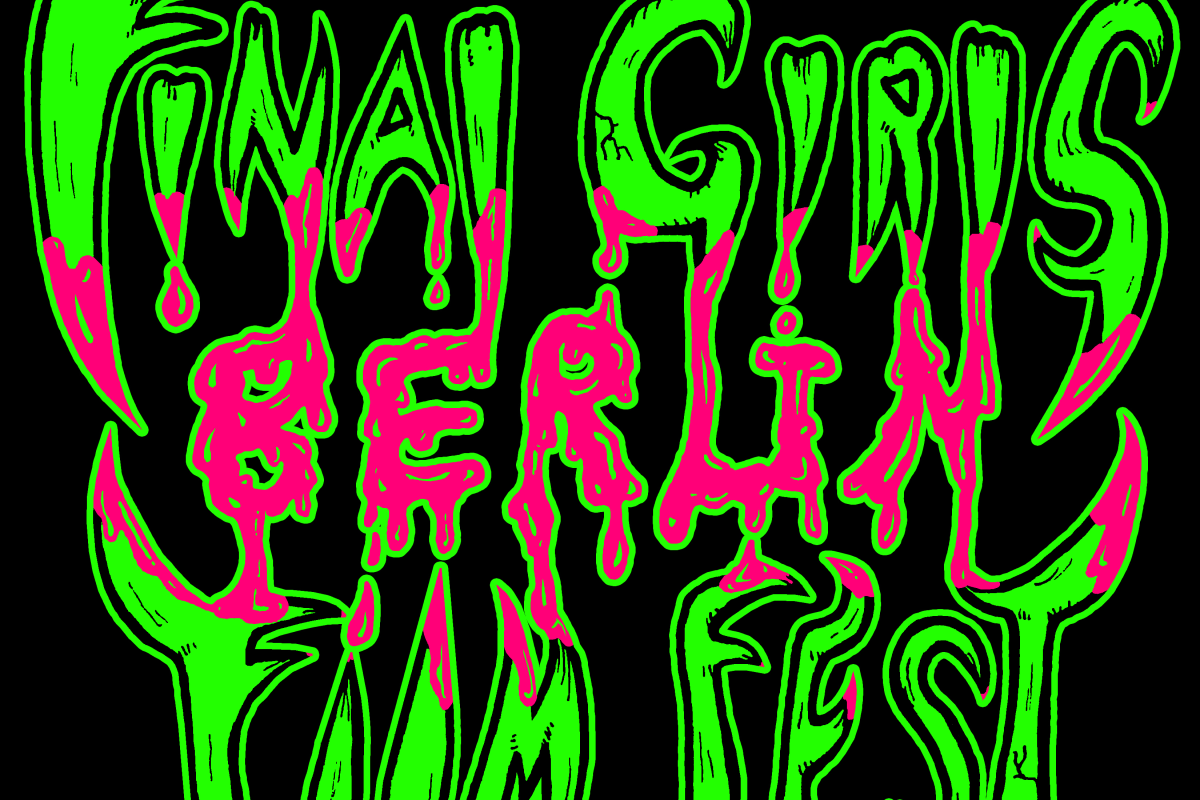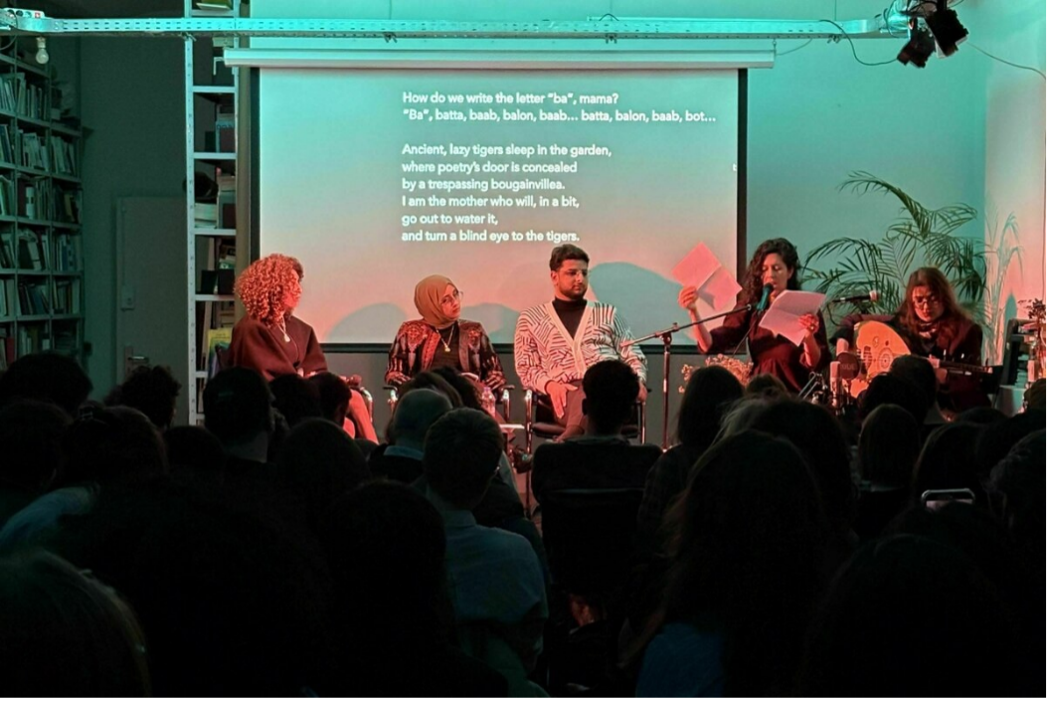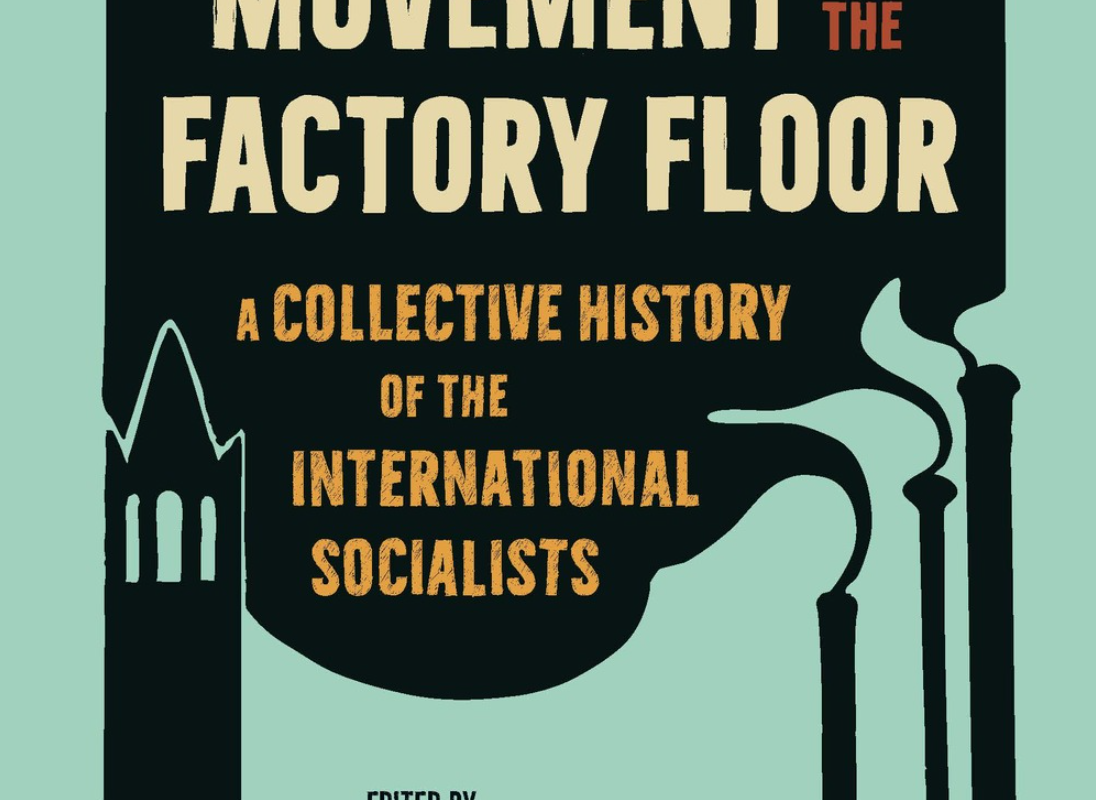Note: This interview was carried out on Monday, 22nd January, the day in which the Berliner Senat announced its withdrawal of the “Anti-Discrimination” clause.
Hello, thanks for agreeing to talk to us. Could you explain a little about your organisation?
ACAB is an alliance of artists who came together in the past few months after the Hamas attacks in Israel and the subsequent genocidal bombing that began in Gaza. The cultural scene in Berlin was very, very quickly becoming even more sensitive, prone to censorship and repressive than it had already been. So we assembled a meeting and started working together.
ACAB stands for Arts and Culture Alliance Berlin. The main goal was to make sure that the most marginalised amongst our community of artists are not the ones who are being left behind in the struggle. Unfortunately, they have been the ones who have been feeling the brunt of the cultural repression that’s been playing out at the moment.
There’s been this idea that arts and culture somehow need this kind of political repression in a heavier way than other fields. There’s a displacement of actual fighting against fascism onto people who are trying to speak out against the genocide.
It’s been Arabs, Muslims, Palestinians, and people who support Palestinian Liberation who are losing funding, being de-platformed, and generally being cancelled by the establishment arts scene in Germany. This is part of the concerted effort of Germany to stand fully behind Israel’s manipulative upside down claims to have a right to defend itself when defence has become an obliterative offence.
Because Germany seems to think that the issue with all of this is just Jews and not genocide, it is forbidding any kind of dissent from within the country. Anyone in culture who’s even potentially in support of Palestine is an antisemite. And because of the right wing idea that criticism of Israel is antisemitic, the entire spectrum of political actors are clamping down and silencing critiques of Israel.
Who is involved in ACAB?
It’s an alliance of cultural workers. And that can be defined as broadly as possible – anyone who calls themself an artist. If you have a similar feeling to us, you are welcome to join.
We felt the need to organise on a more grassroots level than what was already established through organisations like the Bundesverband Bildender Künstlerinnen (BBK) – an official body that represents the interests of visual artists and who are also doing amazing work. We also saw the need to organise from an intersectional position that centres the politics of the artists who stand the most chance of being silenced right now and generally speaking, those are not German. There’s a rift that’s opening up between what Germans believe is a left-wing politic, and an actual representation of marginalised voices in this country.
We saw that yesterday [21st January] in the demo against the AfD, where the Palestinian bloc was attacked by people at that demo. There’s a constant struggle where the German Left is paralysed by not knowing how to avoid antisemitism while also avoiding anti-racism.
A lot of people have chosen to exclusively privilege antisemitism. But we’re trying to say that all of these forms of discrimination are intersectional and must be treated equally. We cannot allow right-wing violence, even if it’s done by someone who claims to be a victim such as the State of Israel. That’s something that seems very hard for Germans to understand right now.
Can we say something about the “anti-discrimination” clause? ACAB has now organised two demos outside the Berliner Abgeordnetehaus against the clause. What does it mean for artists who live in Berlin?
Much of Germany’s cultural sector is publicly funded. That means that tax money pays artistic labour, for the existence of artistic institutions, and for our studios to be subsidised. Much of the cultural sector comes from public funding.
Now the CDU is in power in Berlin and their senator has decided to impose an “anti-discrimination” clause to be added to all funding contracts. If you sign it, you must accept the IHRA definition of antisemitism, which states that critique of Israel is antisemitic.
I was reading the clause again last night to be sure about the wording. And there’s one line which says that you agree not to work with anyone who is suspected of working with extremist or terrorist groups. This is for me, very worrying.
That means that the definition of who gets labeled a terrorist or extremist organisation is left to the often biased opinions of public officials. Groups who support Palestinian solidarity would be much easier to define as a terrorist or extreme rather than a right-wing German group.
Were the clause to be put into effect, what kind of cultural scene would we have? We would have people who did not have any qualms in endorsing Israel’s actions, who are either pro-Zionist or simply ambivalent or indifferent to genocide. It would be a very, very different cultural scene than the one that we have.
We are not against actual anti-discrimination measures. We absolutely believe in anti-racism and anti-discrimination, but the most marginalised people must be safe. What we have seen uses the language of anti-discrimination, but the so-called “anti-antisemitism” measures are being used as a weapon against marginalised artists.
It’s important to say that we don’t think of artists being completely free of politics. We believe in freedom of speech only up until the point that it is not discriminatory to others. The far right has used the language of freedom of speech for decades. But when we talk about freedom of speech, we talk about freedom towards a liberatory critique of power.
Has there been a reaction from white German artists to the clause?
Of course. They’re trying to show their support. But it’s not universal, and there’s a bit of a tipping point around freedom of expression. Any artist worth their salt knows that you can’t do this. You’re getting a lot more people who may not be so sure about Palestine or antisemitism, but they’re sure about freedom of expression.
They’ll distance themselves very carefully to try to feel like it’s not too close to what they feel uncomfortable with. But when it comes to freedom of expression, and what can be said and done as art, they know that if they endorse the censorship, they will lose their legitimacy as experts in culture.
More than other demographics, artists are internationally networked. And internationally, people on the Left have sympathy for Palestine. It’s different within Germany, where the Left is very confused right now. But internationally the Left is far more secure. In the art field itself, there is a larger sympathy for a pro-Palestinian position than outside. For German artists, that’s kind of alienating and a bit threatening.
How have cultural institutions reacted?
We need arts and culture platforms to be able to maintain spaces for freedom of speech and criticism. But the institutions across the board were silent or pro-Zionist even before the government proposed the discrimination clause. The spreadsheet “Index Palestine” has kept track of how cultural institutions were reacting, and almost all of them were completely silent while so many events were being cancelled, and artists were being de-platformed.
On top of that, they were checking our Facebook posts or Instagram posts. If the clause goes into effect, this will put the institutions in the position of deciding who they want to work with, and who’s a safe bet. This censorship enters into the institutions and makes artists choose between getting funding and solidarity.
This is very dangerous for art because everyone starts to surveil each other. Institutions can say: “Oh, you made a post, you signed a letter that somebody else in favour of BDS signed.” It gets very insecure very quickly, because art does not generate money on its own. We need funding. The cultural scene is very dependent on external sources of money.
In other countries, where art is entirely based on foundations and private funding, the people who are affiliated with Zionism are just pulling shows and withdrawing money. Here, where it’s coming from the public funding and the government, the abuses of power are very intense.
I’m quite bolstered in my optimism in knowing that the cultural scene of Berlin can’t happen without us. Further, we have a voice because of public money. This is why it just seemed so urgent and necessary to start organising.
It was announced in today’s demo that the clause has been withdrawn. How much do you know about why this has happened? Is this a permanent thing? What happens next?
Since we were outside at the demo, we didn’t get to watch the proceedings. I’m just going on what we heard from other people inside. We can accept this as a victory because whatever the plan was, it is now no longer. The plan has been put on hold or at least postponed.
But we will definitely continue organising. Artists have now been awarded funding for 2024. They are all organised and ready to fight the clause if it shows up in our contracts. We will keep going. I don’t think the fight is over.
We want to make sure that things don’t get worse. There’s always going to be more to work on. If we win the fight on the anti-discrimination clause, we have 4 million other things. There’s so much more to do. The fact that we’re organised and we’re finding each other and building trust with each other is always going to be a good thing, no matter what.
Do you think your demonstrations affected the decision?
Definitely. The first demonstration was really impactful. By the time they got to today’s meeting, they would have already made the decisions. So I think today was much more symbolic. But it’s good that we did it anyway. There’s been a lot of work going on behind the scenes that has definitely shifted things. But it’s not the end.
Part of what we’re doing is just for us. We’re doing this to show each other that we stand up against this. We are all working as hard as we can to build the culture that we want in our communities. This is a really big step. We have this network now and we have accountability to each other.
Berlin’s art community is diverse. There’s some who are pro-Palestine, others who are not so pro-Palestine, but for free speech. Some artists support you, but are very wary of signing any open letter because they know that this could mean that they lose work or funding.
What can artists in Berlin do to support what you’re doing and what you’ll be doing in the future?
We have open meetings, they’re welcome to join us. There’s lots of work to be done. Argue with Germans. There’s a discursive shift that needs to happen around what is fascism and where their voices are needed. We need everybody to get into these conversations and try to sway public opinion. It’s gradual, it’s not like you just step out and you’re fully radicalised. You take steps towards feeling more secure in what you are comfortable committing to.
If people are scared of signing letters, I would say that the more people do it, the more safe we are all together. If 10,000 artists in Berlin sign a letter, they can’t cancel all of us. That’s what was also really encouraging about the most recent letter against the anti-discrimination clause. It had a very wide reach with 5,000 signatories. I don’t know how many working artists there are in Berlin, but that’s a good proportion.
You don’t have to do it alone. There are ways that you can contribute to struggles without having to put your name out there or having your face in the media. It’s about making us all stronger and safer through collective action. This has been our guiding light in the ACAB group.




